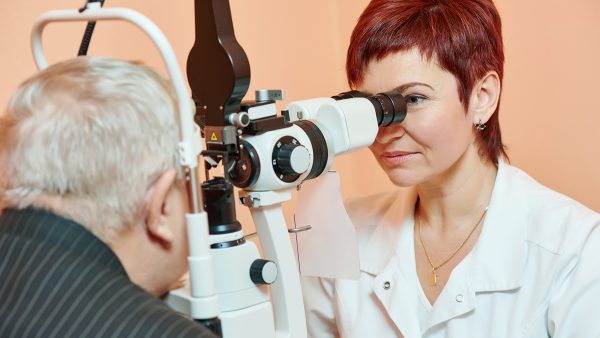How do you test for diabetic retinopathy?

Diabetes can cause a number of problems with diabetic retinopathy being the most common. In fact, more than 2 in 5 adults in the U.S. have diabetic retinopathy.
Diabetic retinopathy can cause vision loss or even blindness, and anyone with diabetes is at risk for developing it. Let’s discuss the different stages of diabetic retinopathy, how it’s diagnosed, and how to treat it.
Stages of diabetic retinopathy
Diabetic retinopathy is classified into two types and four stages. The two types are non-proliferative (within the early stages) and proliferative (within the advanced stages). The four stages consist of:
- Mild non-proliferative: the earliest stage of the disease with swelling of the blood vessels of the retina
- Moderate non-proliferative: increased swelling of blood vessels and starts to interfere with blood flow of the retina
- Severe non-proliferative: larger section of the blood vessels in the retina become blocked, causing an extreme decrease of blood flow
- Proliferative: the advanced stage of the disease in which new blood vessels form in the retina with risk of fluid leakage.
Once you’ve reached the proliferative stage, you will start experiencing vision problems, which could eventually lead to blindness.
How doctors check for diabetic retinopathy
To be properly diagnosed with diabetic retinopathy, you must have a comprehensive eye exam in which your eye doctor will look for abnormalities inside and outside of the eye.
At Oklahoma City Vision, we check for diabetic retinopathy by doing a comprehensive eye exam with dilation or retinal photography.
How to treat diabetic retinopathy
After your exam, your eye doctor will determine what stage you’re in and when treatment should begin. When diabetic retinopathy is mild or moderate, a great way to start treatment is to improve your diabetes management and maintain good blood sugar control.
If your disease is in the proliferative stage, you’ll need prompt treatment, such as:
- Taking medications
- Photocoagulation and pan-retinal photocoagulation
- Vitrectomy
If you suffer from diabetes, talk to your doctor about the risks and how to maintain good diabetic management to stay healthy. If you suspect that you have diabetic retinopathy, visit your eye doctor as soon as possible. The earliest it can be diagnosed, the better the outcome.
